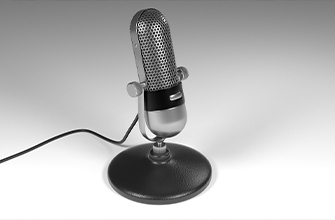Everyone has seen someone playing the guitar at a cafe or roadside and thought, “I want to do that.” It’s a fun idea, and let us be honest here: who wouldn’t want to play? But then the realisation hits that learning takes time, and we wonder how long it will take to play something. The truth is that since your skills are unique, it is different for everyone. Some people have a knack for quickly grasping new skills in just a few months. Others might just take longer than expected. But with patience and daily dedicated practice and discipline, you’ll be surprised at how quickly you can learn the guitar. In this blog, we will dive into a discussion, and at the end, you will be able to comfortably assess how much time it takes to learn the guitar. Let’s find out.
Understanding the Basics
To start, learning the basics of playing guitar is like creating the base for your musical journey. It might seem overwhelming at first because there’s a lot to learn—like chords, strumming, and finger placement—but it’s all about taking it step by step.
One of the most important things to begin with is properly learning how to hold the guitar correctly. Learn to tune it, and start getting comfortable with basic chords like G, C, and D. These chords are going to serve as the foundation for nearly any song you wish to play. As you get better at these things, each small improvement will give you more confidence and a better rhythm. Once you’ve mastered the basics, now you can get to the part where the real fun begins!
Factors Affecting Learning Time
As you slowly begin to learn the guitar, there are going to be several factors that can influence how quickly you level up. Understanding these factors beforehand and preparing for them in advance can help you set realistic experiences. Here are a few points to keep in mind:
- Practice Consistency
Just like it is with every other skill, learning the guitar requires lots of practice and repetition. Practising for just 20 minutes daily can be far more beneficial than for 2 hours once a week. Practising your skill daily also helps your muscles get familiar with the strings and chords of the guitar. This memory means that your fingers will learn to move more fluidly between chords and scales.
- Quality of Practice
Daily practice is essential to learn guitar but it is not just about the time you put in; it is also about how effectively you use that time. Simply strumming and humming might feel like practice, but only for a few days. As soon as you get comfortable with the strings, you should begin taking focused sessions for better results. Structured practice will help you improve on your weaker areas and also help you keep your learning curve balanced.
- Learning Methods
How you learn to play the guitar can play a significant role in shaping your future musical journey. Self-taught learners often rely on videos or apps but enrolling in online guitar classes can be very beneficial, especially in your early days. The structured guidance of an expert can help you progress quicker than someone without guidance.
Common Challenges and How to Overcome Them
Learning the guitar comes with its own set of unique challenges, especially for beginners who are just starting out and are in their early stages of learning guitar. This is why understanding the challenges before facing them can be very beneficial on your musical journey. Here are some common hurdles that our learners often face and tips on how to tackle them.
- One of the first struggles that most beginner guitarists often face is sore fingertips. Continued pressing down on strings might make your fingers bruised, and this can prevent you from practising the next day. This is why you should avoid over-practicing if you are new to playing.
- As you progress to more and more complex melodies, transitioning seamlessly is one place where many get stuck. To avoid getting stuck here, focus on getting the transition smooth, even if it feels awkward or slow. Over time, your fingers will remember where to go naturally due to muscle memory.
- Staying motivated can be very hard for people after the initial excitement wears off. At this stage, learners often feel frustrated or bored, and it gets really hard to keep up with their daily practice. To overcome this, you can set achievable targets such as mastering a particular catchy chord, or trying out new styles and techniques. This can provide you with the motivation to keep up with your practice.
Conclusion
If you ask experts like us, learning the guitar isn’t a race to a finish line. You should consider it to be more of a journey that evolves with you over time. The first few weeks might feel sluggish but as you start picking up on chords and techniques, your musical journey will blossom.
It is essential to maintain patience and consistency to achieve substantial success. Before you know it, you’ll be playing songs you once thought were impossible to pull off. So whether it takes a few months or a couple of years, make sure to enjoy the process of learning and celebrate every small win you have along the way.
If you want to learn while enjoying your guitar journey, then our specially designed music courses can be of great help to you. We, at Artium Academy have designed our guitar course in collaboration with guitar guru Raju Singh. He is also the faculty head for guitar where under his guidance, you will be trained in a variety of guitar-playing techniques through a combination of performance training and theory.
















